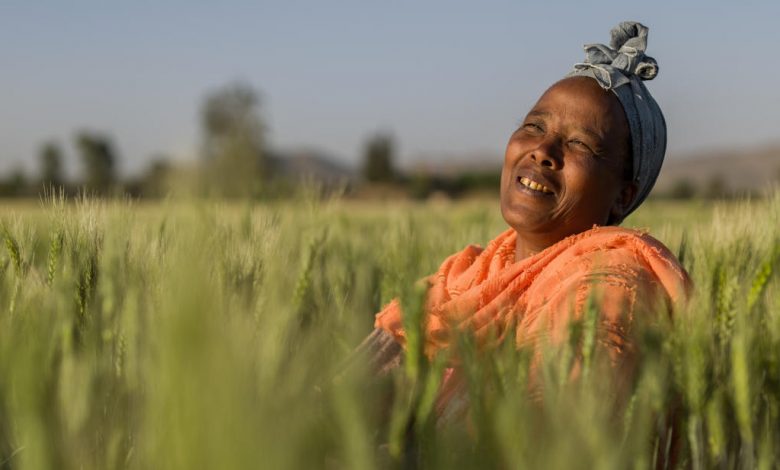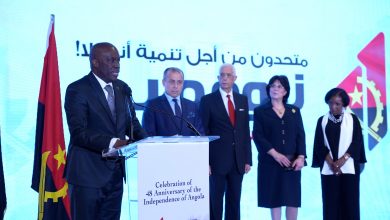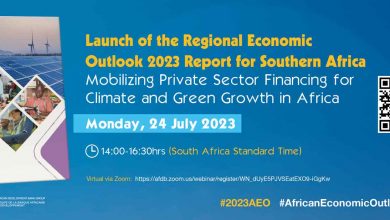Second International Summit on Food Production in Africa in Dakar | African Development Bank

Diplomat.Today
The African Development Bank
2023-01-18 00:00:00
——————————————-
African heads of state and government will meet in Senegal with development partners to map out strategic plans to unlock Africa’s food-producing potential and position the continent to become a breadbasket for the world.
President Macky Sall of Senegal, and President of the African Union, will host the three-day Dakar II Food Summit from January 25, with the African Development Bank Group co-hosting it.
The summit agenda whose theme is, Feed Africa: food sovereignty and resilience, is the improvement of Africa’s food supply and security; tapping into the continent’s vast agricultural resources; boosting international trade, increasing market share and adding production and processing value.
One third of the world’s 850 million hungry people live on the continent.
With the removal of barriers to agricultural development aided by new investment, Africa’s agricultural output could increase from $280 billion a year to $1 trillion by 2030. (Photo: Technologies for African Agriculture Transformation project in Kenya)
Dr. Akinwumi A. Adesina, President of the African Development Bank Group, said: “The Dakar II Summit will mobilize political commitment, development partners and private sector investment, establish much-needed policies and strategically drive action to deliver results at scale. This historic event will be a turning point towards food sovereignty and resilience for the entire continent.”
The top forms the core of the Bank Group FeedAfrica Strategy, one of the settings High 5 priority areas to support African countries to significantly increase agricultural growth.
The summit is a follow-up to the first edition of 2015, which presented the Feed Africa Strategy for Agricultural Transformation (2016-2025) in Africa.
At the summit, heads of state and government will convene sessions to develop transformational country-specific supply pacts for food and agriculture. Development partners and the private sector will also play an important role during sessions and the overall summit. African countries are also expected to make measurable political commitments to implement policies designed to eradicate extreme poverty, hunger and malnutrition in Africa.
Dr. Beth Dunford, Vice President for Agriculture at the African Development Bank, said: “The country compact will provide targeted roadmaps to self-sufficiency and provide interventions that will make the African agricultural sector more business-oriented and commercially viable. Dunford added: “The summit will be the one-stop shop for African countries pursuing more and better investments backed by the public sector and led by the private sector.”
The summit will take place at the Abdou Diouf International Conference Center in Diamniadio, 26 kilometers from the Senegalese capital Dakar.
The meeting showcases programs that are already contributing to African food sovereignty and resilience. This includes the African Development Bank’s Technologies for African Agricultural Transformation (TAAT) platform, which supplies heat-tolerant wheat, drought-tolerant maize and high-yield rice seeds to 11 million African farmers in 21 countries.

The Technologies for African Agricultural Technologies program will produce an additional 100 million tons of food to feed 200 million people. (Photo: TAAT Kenya Flour Miller beneficiary).
According to Dr. Martin Fregene, director of agriculture and agro-industry at the African Development Bank, TAAT will produce an additional 100 million tonnes of food to feed 200 million people.
He said: “We know what works in Africa. Scaling agricultural technology programs like TAAT does more than just boost agricultural output. It increases wealth, creates jobs and opens our markets to regional and international trade. It is critical to support these efforts. Africa benefits – the world benefits – from such a concerted effort.”
According to Adesina: “Now is the time to invest in Africa’s future. The continent has over 60% of the world’s remaining farmland and millions of Africans are productive in the agricultural sector. With the removal of barriers to agricultural development aided by new investment, it is estimated that Africa’s agricultural output could increase from $280 billion a year to $1 trillion by 2030.”
The International Fund for Agricultural Development, the Islamic Development Bank, the Food and Agriculture Organization of the United Nations, the Bill & Melinda Gates Foundation, the Alliance for a Green Revolution in Africa and several bilateral partners are among the summit’s international supporters.
——————————————-



